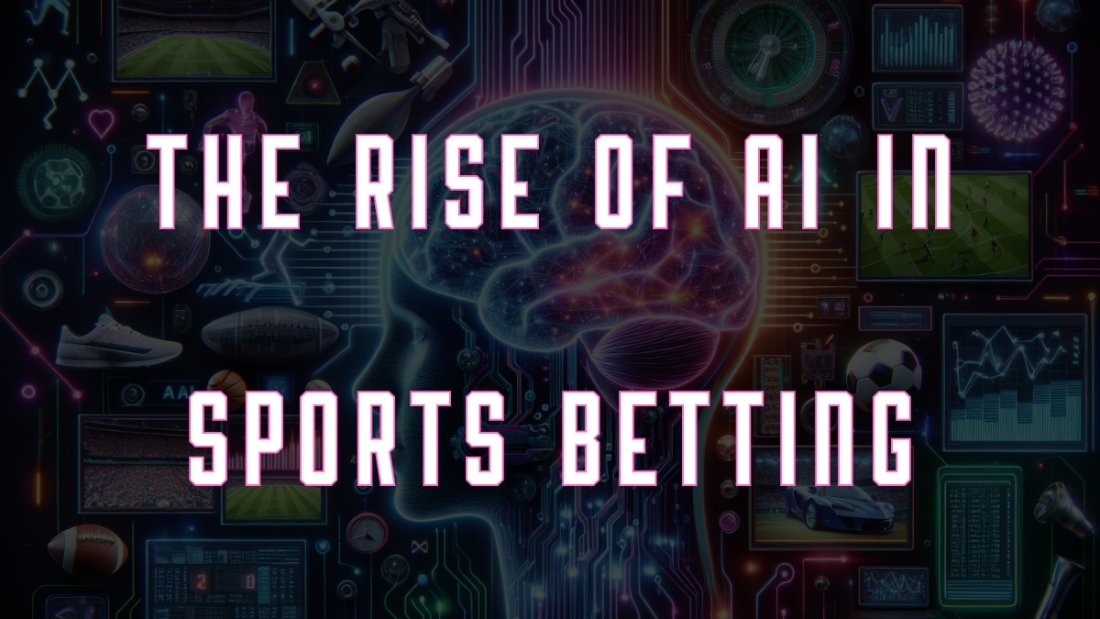AI is revolutionizing sports gambling and transforming it from a game of chance to a data-driven activity, incorporating predictive models and value betting to enhance sports predictions. Sports gambling is here to stay for the long haul, this shift not only enhances the accuracy of sports data but also tailors the betting experience to make it personalized.
AI’s involvement in sports betting extends to real-time data analysis for in-play betting and ensuring fairness in games, thereby elevating the integrity of sports betting. This double-sided approach of improving user experience and maintaining the credibility of betting platforms positions AI as a pivotal component in the future of sports gambling.
Enhancing Predictive Analytics in Sports Betting
In the realm of AI sports betting, predictive analytics uses datasets to forecast outcomes with remarkable precision. If I had to simplify this blog, that is how I would say it. Simple as that. The key components of this process include:
Data Collection and Analysis: Gathering comprehensive data sets of past game results, player statistics, weather conditions, and even social media sentiment. This amount of information forms the core for predictive modeling.
Predictive Modeling Techniques: Employing a variety of models ranging from simple linear regression to more complex algorithms. These include decision trees, neural networks, and ensemble methods. These models digest the amassed data to predict outcomes, such as the victor of a game or the total points scored.
Real-time Adaptability and Risk Management: AI’s capability to process and adapt to new information swiftly ensures predictions reflect the latest data. Moreover, risk management techniques are integrated to mitigate potential losses. Only enhancing the betting strategy’s robustness.
These elements collectively contribute to a more dynamic and efficient betting market. The AI-driven systems offer insights that not only enhance accuracy but also provide a strategic edge.
Personalizing the User Experience
In the rapidly changing world of AI sports betting, customizing the user experience has become a critical strategy for engaging and keeping customers. Key to this approach are:
AI-Powered Personalization Techniques
Betting Suggestions and Odds Updates: AI systems like BetBuddy and Swish Analytics offer tailored betting suggestions and real-time odds updates. Depending on preference of features the betting experience will with individual preferences and betting histories.
CRM Systems: Advanced AI-based CRM systems analyze user behavior, preferences, and trends. Using this data they craft highly personalized digital experiences. This not only improves user satisfaction but also gives sportsbooks a competitive advantage.
Technology-Driven Personalization Platforms
Epoxy.ai and GR8 Tech: These platforms leverage AI and machine learning to understand users deeply, delivering personalized recommendations. To add to that, it also connects users with the content they desire. From sportsbook enhancements to casino product personalization, these technologies are setting new standards in user engagement and satisfaction. It is only going to to ascend as more capital is being deployed into the industry.
AI in Fraud Detection and Enhancing Fairness
Sports leagues have expressed their concerns regarding the integrity of the game. AI’s role in enhancing fairness and combating fraud in sports betting cannot be overstated. Through the implementation of AI-based betting anomaly detection systems major change is on the horizon. The industry is taking strides toward ensuring a fair and legal betting environment. These systems utilize sophisticated machine-learning models, including RF, KNN, and ensemble models. They have demonstrated impressive accuracy rates of over 92% in detecting match-fixing anomalies. In contrast, LR and SVM models have shown to be around 80% accurate.
AI tools extend their capabilities to tracking suspicious betting patterns or activities. Advanced pattern recognition technologies enable these tools to analyze a wealth of data from various sources. Examples include transaction records, user behavior, and betting patterns, in real-time. This facilitates immediate alerts and notifications, allowing for prompt action to prevent fraudulent behavior.
Fraud Detection Capabilities
Real-time monitoring of transactions, bets, and player activities using advanced pattern recognition from diverse data sources. Immediate alerts and notifications for prompt fraud prevention actions. Furthermore, AI algorithms significantly outperform traditional methods in fraud detection. That or us humans turn a blind eye.
These models, constantly learning from historical data and feedback from investigators, adapt to new fraud techniques. The end goal is to ensure the betting environment’s integrity remains intact. AI systems like the FDS by Sportradar exemplify the cutting-edge technology used to flag irregular activities.
The Future
The transformation of betting from a mere game of chance to a sophisticated, data-driven venture underscores AI’s pivotal role. Whether it is in refining strategies, augmenting user engagement, or maintaining the integrity of sports betting platforms.
Reflecting on the broader implications, the integration of AI into sports betting sets a precedent for other sectors. Outside of sports the potential of technology to revolutionize traditional practices by emphasizing accuracy, personalization, and ethical standards. As we look ahead, the call for further research and innovation remains paramount. Not only to leverage AI’s potential to its fullest but also to navigate the complexities and ethical considerations it brings. This journey of integrating AI into sports betting is just the beginning. Today is the day where technology and human insight collaborate to create safer, more engaging, and conscientiously developed experiences across various industries.



Leave A Comment